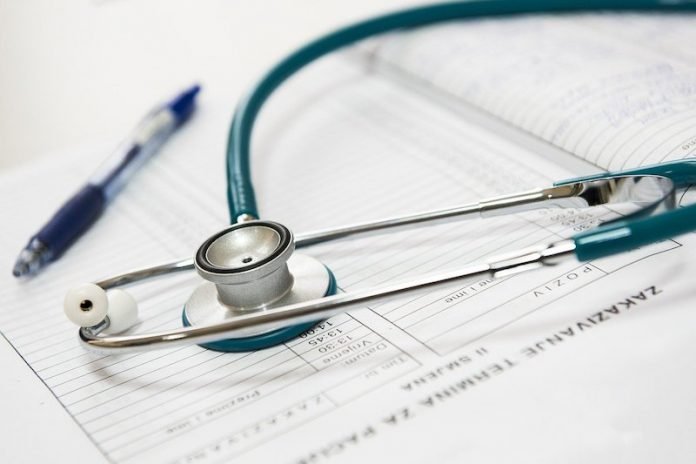
The benefits outweigh the risks in locations with lower rates of the virus, experts say.
Cancer centers around the country, including the University of Michigan Rogel Cancer Center, are urging people not to let routine cancer screenings lapse during the COVID-19 pandemic.
“Regular mammograms, colonoscopies, Pap tests and prostate cancer tests are our best methods for detecting cancer before it starts or at its earliest stages, when it’s easiest to treat,” says Kim Zapor, a nurse with the U-M Rogel Cancer Center’s CancerAnswerLine.
“Hospitals are taking many precautions to keep patients safe during a visit, so, except in places experiencing a severe COVID outbreak, the risk to the patient from skipping a test is greater than the risk from going to a clinic.”
More than a third of American adults have skipped scheduled cancer screenings during the pandemic, a survey by the Prevent Cancer Foundation found.
And weekly diagnoses fell by nearly 50% for the top six types of cancer during the early months of COVID, a recent study in JAMA Network Open found.
Another editorial, authored by the National Cancer Institute, warned that drops in screening for breast and colorectal cancer alone may lead to as many as 10,000 additional deaths in the coming decade.
“We’re urging patients to make and keep appointments for their routine cancer screenings,” Zapor says.
As part of Michigan Medicine, the Rogel Cancer Center is taking numerous precautions to help keep patients stay safe during visits, including:
Requiring all patients, visitors and hospital staff to wear masks.
Increasing physical distancing and rigorous disinfecting protocols throughout its facilities.
Increasing the use of virtual visits to limit the number of patients needing in person clinic visits.
Why routine cancer screening matters
The goal of every type of cancer screening is the same — to detect abnormal cells before they can develop into cancer and to find cancer at its earliest stages, before it has spread.
National guidelines recommend what ages to be screened at for certain cancers. If you have a family history of cancer or other risk factors, though, your doctor may recommend that you start screening sooner.
Zapor stresses that patients who are considering putting off routine screening due to COVID-19 concerns should speak with their primary care physicians.
“Those who are at a higher risk for developing cancer — those with a family history, a known genetic mutation, a history of polyps, or who have had an abnormal screening in the past — are strongly urged not to skip screenings,” Zapor says.
“Those without a known risk factor should talk to their doctor about the pros and cons of delaying screening.”
Follow this quick guide below for when to get screened, and for what, and save this cancer screening guidelines pdf print out to your phone or Pinterest board to reference anytime:
Ages 21-29
Cervical cancer: Screening every 3 years with a Pap test. Follow testing recommendations even if you’ve been vaccinated against human papillomavirus (HPV).
Ages 30-39
Cervical cancer: Screening every 3 years with a Pap test or every 5 years with an HPV test, or every 5 years with co-testing with both a Pap test and an HPV test. Again, follow testing recommendations even if you’ve been vaccinated against HPV.
Ages 40-49
Breast cancer: Mammograms can begin as early as age 40; discuss the pros and cons of screening with your doctor. Yearly mammograms are recommended starting at age 45.
Cervical cancer: Screening every 3 years with a Pap test or every 5 years with an HPV test, or every 5 years with co-testing with both a Pap test and an HPV test. Follow testing recommendations even if you’ve been vaccinated against HPV.
Colon cancer: Testing should begin at age 45. Test options include a colonoscopy and less invasive stool tests.
Ages 50-65
Breast cancer: Mammograms should be done yearly from ages 50-54. Starting at age 55, your doctor can help you decide whether testing every year or every other year is best for you.
Cervical cancer: Screening every 3 years with a Pap test or every 5 years with an HPV test, or every 5 years with co-testing with both a Pap test and an HPV test. Follow testing recommendations even if you’ve been vaccinated against HPV.
Colon cancer: Testing should begin ASAP if it hasn’t already.
Lung cancer: Annual testing with low-dose CT scans is recommended starting at age 50 for current and former smokers who have smoked an average of a pack a day for 20 years. Benefits, limitations, risks and potential costs should be discussed with your doctor.
Prostate cancer: Discuss the pros and cons of testing options with your doctor starting at age 50.
Ages 65 and Over
Breast cancer: Your doctor can help you decide whether to get a mammogram every year or every other year.
Cervical cancer: No testing is recommended if you’ve had normal test results over the previous 10 years.
Colon cancer: Testing is recommended through age 75. After 75, talk to your doctor about whether or not to continue testing.
Lung cancer: If you are a current or former smoker, talk to your doctor about testing with low-dose CT scans.
Prostate cancer: Overall health status is more important than age when discussing testing with your doctor.
Written by Jacqueline Cole.



